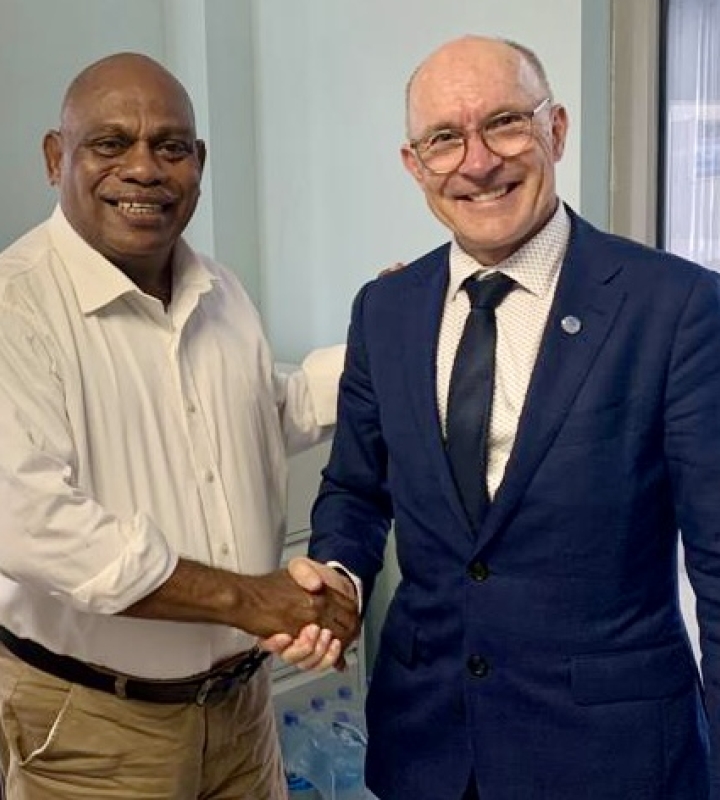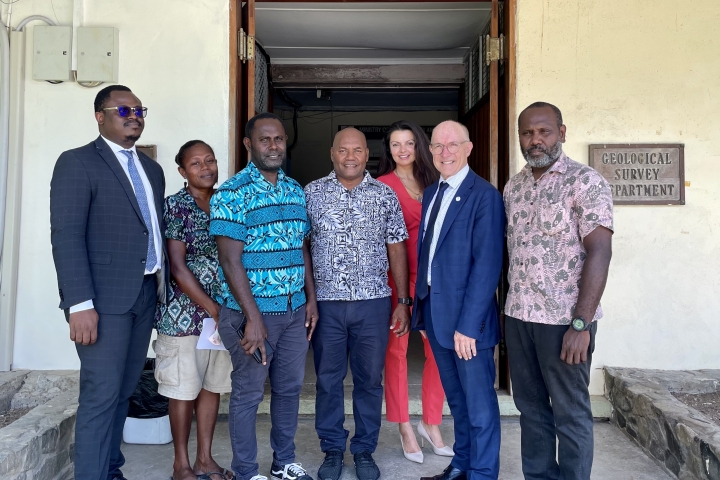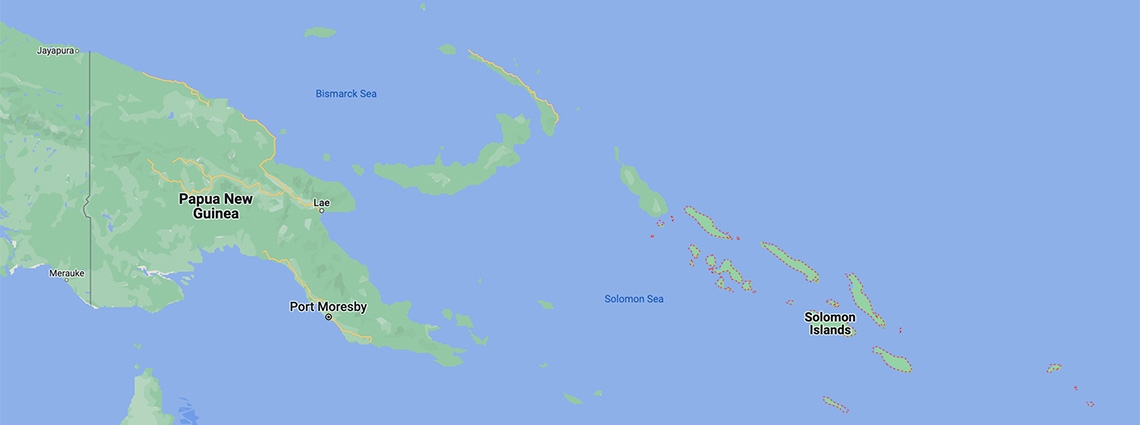Solomon Islands and Papua New Guinea commit to ratify CTBT
The Solomon Islands and Papua New Guinea have pledged to ratify the Comprehensive Nuclear-Test-Ban Treaty (CTBT), a compelling testament to the Pacific region’s commitment to the nuclear non-proliferation and disarmament architecture.
The pledges came during a 4-day visit to the region in November 2022 by Executive Secretary Robert Floyd, which started in Honiara, capital of the Solomon Islands, where he met with the Permanent Secretary to the Ministry of Foreign Affairs and External Trade (MFAET), Collin Beck.
“The Solomon Islands, a signatory of the Treaty (since 1996), is completing its internal process to ratify,” Beck stated in a Tweet, adding: “Strengthening international law in the name of peace is a duty”.
Welcoming the news, Floyd thanked the country, calling the move an “act of solidarity with other Pacific Island nations and the global community for a world free of nuclear weapons tests”.
The visit included engagements with other officials; the country’s Minister of Police, National Security and Correctional Services, Antony Veke, the Minister of Environment, Climate Change, Disaster Management, and Meteorology, Stanley Sofu, and the Speaker of Parliament, Patteson Oti.
During the first leg of the trip in the Solomon Islands, Floyd also met with the technical partners of the Comprehensive Nuclear-Test-Ban Treaty Organization (CTBTO) from the Seismological Observatory Section, which is the designated National Data Centre (NDC) of the island country – the focal point on matters related to the CTBTO.
It also hosts an auxiliary seismic station (AS098), which taps into one of the three waveform technologies used by CTBTO’s International Monitoring System (IMS) to detect, locate, and distinguish between an underground nuclear explosion and the numerous natural and man-made seismic events that occur every day - such as earthquakes and mining explosions.
Following the trip to Honiara, Floyd travelled to Papua New Guinea, where he received the second pledge of CTBT ratification from Foreign Minister Justin Tkatchenko.
The Minister welcomed the visit in the context of diplomatic efforts by Papua New Guinea to achieve peace and security. He also conveyed his commitment to the Treaty: “I assure you of the country’s full, unequivocal support for the CTBT”.
CTBTO’s head praised the commitment, which will bring the Pacific Islands region one step closer to universal adherence to the Treaty, while strengthening the global non-proliferation and disarmament regime - an important measure in the current international security context.
Executive Secretary Floyd was also warmly received by Attorney General Eric Kwa, who plays a significant role in the country’s national ratification process.
While in Port Moresby, the CTBTO delegation also met with representatives from the Department for Mineral Policy and Geohazard Management (DMPGM), which operates three IMS stations: two auxiliary seismic stations (AS075 and AS076), and one infrasound station (IS40). Also present in the meeting: personnel from the country’s National Weather Service (NWS), which operates a radionuclide station (RN51).
Floyd expressed his gratitude for the key contributions made by Papua New Guinea and its experts to CTBTO’s verification regime.
During the regional visit, CTBTO’s Executive Secretary and officials from the Solomon Islands and Papua New Guinea identified various technical cooperation projects to ensure that the two States Signatories reap full benefits of Treaty membership – among them: a wide range of civil and scientific uses of the Organization's data.

Floyd and CTBTO delegation in Port Moresby with Papua New Guinea’s Attorney General, Eric Kwa and ad interim United Nations Resident Coordinator, Marielle Sander

Floyd meets with national experts and officials from Papua New Guinea’s Department of Mineral Policy and Geohazards Management and National Weather Service
1 Dec 2022

CTBTO’s Executive Secretary Robert Floyd meets with the Permanent Secretary to the Ministry of Foreign Affairs and External Trade (MFAET), Collin Beck

The Minister of Environment, Climate Change, Disaster Management, and Meteorology of the Solomon Islands, Stanley Sofu and Floyd

Floyd meets with national experts and officials from the Solomon Islands’ Seismological Observatory

The Foreign Minister of Papua New Guinea, Justin Tkatchenko and Floyd



